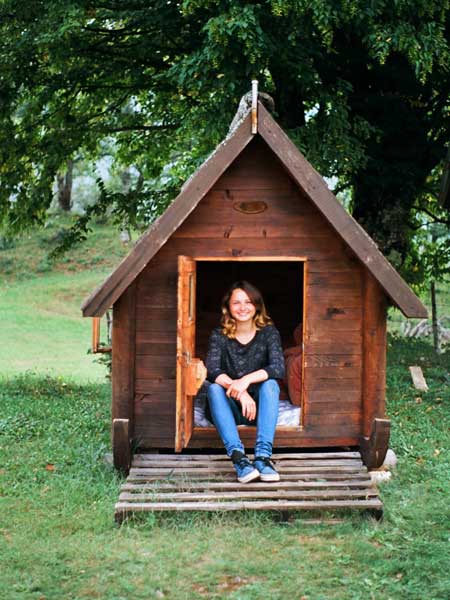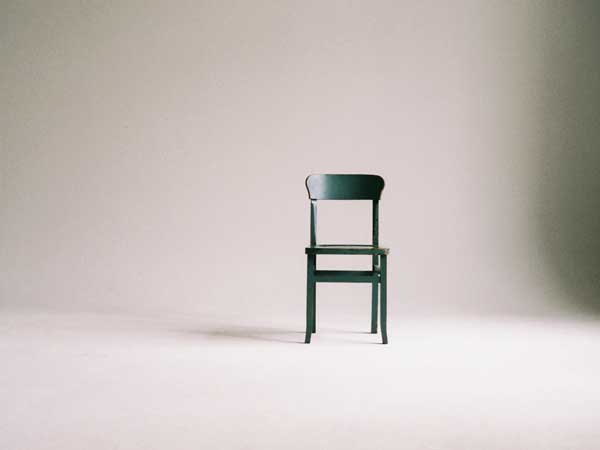Gloria’s childhood was a mess. Her parents split up when she was nine years old and she moved to Charlotte, North Carolina, with her mother.
Perhaps it was the alcohol or just the stress from the divorce, but Gloria’s mom turned into a hoarder.
There were piles of clothes stacked all the way to the ceiling on the dining room table. They accumulated furniture found on the street. On the kitchen counters and floor, there was an avalanche of pots and pans.
Anything Gloria’s mother could get for free or cheap would be brought into the house and deposited there. Gloria, oddly enough, kept her own room tidy, but everything outside her bedroom door was chaos.
Eventually, Gloria grew up, left home, moved to Toledo, Ohio, found a well-paying job and a husband, and is now living in Beverly.
But the anxiety of her past crept back into her own home.
Gloria began buying more and more items.
Yes, it felt great to open the package at first. But the dopamine wore off just as soon as she threw the packaging away. As she acquired more and more stuff along with more and more debt, she felt as if she was falling into the pattern set by her mother.
Dissatisfied, Gloria turned to the internet for the solution. She came across blogs and teachings of minimalism. Wait… What’s this minimalism ideology? Could this solve all of Gloria’s problems?
If you can relate to Gloria’s situation, then this article is worth reading. But before you start throwing away all your stuff in a search for happiness, let’s discuss what minimalism is and what it is not. First…
What minimalism is not
A casual perusing of the internet might make one think that to be a minimalist you…

- must live with less than 100 things
- can’t own a car
- can’t own a home, and if you do, it must be a tiny house
- can’t own a television
- can’t have a career
- must live in exotic, hard-to-pronounce places
- must start a blog
- can’t have children
- must be a young white male from a privileged background
It will please you to know that minimalism isn’t about any of those things. But if you want to live with fewer material possessions, or not own a car or a television, or travel all over the world, then minimalism can assist you. But that’s not the point.
What minimalism is
According to minimalist devotees, minimalism is about avoiding the unnecessary, it’s about simplicity, utility, and elegance. It’s all about “LESS IS MORE,” to embrace the most of fewer things.
True minimalists need only particularly selected items and they make the most of them, thus reportedly enriching (and not limiting) their experience. Quality triumphs over quantity.
Apparently, the consumerist culture has led to giving too much meaning to material things. Minimalists supposedly find happiness and joy in life itself and the experiences it provides. The things they possess are carefully chosen and have a purpose of not only serving them but also adding a meaningful experience to their life.
Minimalists own things that matter, things that have a much higher value than just taking up space on the shelf.
A minimalist only purchases an item that they really need (not only want) and as a result all aspects of their life supposedly improve.
Genuine minimalists allegedly experience freedom from the passion to possess (just to have something). Minimalists search for happiness not through things, but through life itself.
Is minimalism the key to happiness?
It might seem that minimalists have found the key to happiness and unfortunately, many of them claim to have achieved it.
Although being content with less and not being swept up in the frenzied lifestyle certainly has its merits, is it really the key to happiness?
How many minimalists are free from the other problems of life that cause sorrow?
How many can claim genuine happiness while surrounded by racial inequality, financial instability, political divisions, crime, sickness, and death?
Are minimalists free from thorny relationship issues that can plague us at home and in the workplace? Have they really found a utopian world?
Let an avid minimalist try to explain his philosophy in life to a starving kid in a developing country.
Perhaps it would go something like this: “I was born in a western world, with every opportunity within my grasp. I never wanted for food, education, or anything at all, really. When I see something I want, I can have it. Because of living this way, life has become meaningless, so I’m going to commit to shunning all of it, having less and doing less.”
I guarantee that this conversation will not go over well with a poor child forced into living a truly minimalist lifestyle, no fault of their own.

Owning things is not fundamentally evil.
The problem comes from the meaning we assign to our stuff: we have a tendency to give too much meaning to our things, often forsaking our health, our relationships, our passions, our personal growth, and our desire to contribute beyond ourselves.
Want to own a car or a house? Great, go for it! Want to raise a family and have a career? Have at it.
Perhaps some principles of minimalism can allow you to make these decisions more consciously, more deliberately. But don’t be fooled, minimalism is not the key to happiness.
True, living a simple lifestyle can free you up from a certain amount of stress. It can help you save money. It can help you focus on what’s important. But it will not lead to lasting happiness.
After a thorough analysis, Gloria decided she needed to adjust her thinking about material things and spending habits.
She took the idea of decluttering seriously.
After following the instructions in this blog, Gloria donated some items that were in good shape to a charitable organization. She reclaimed a small fortune by selling unwanted items on the internet.
She also called a Toledo junk removal company to take away the leftover items that she cleared from her home, garage, and storage unit.
Gloria is no longer a slave to her possessions and mindless spending. Did she find the key to happiness? Not really. But her home is a lot cleaner, and she has more money in her bank account. And that, my friend, would at least put a smile on anyone’s face.
By Derik Hicks

